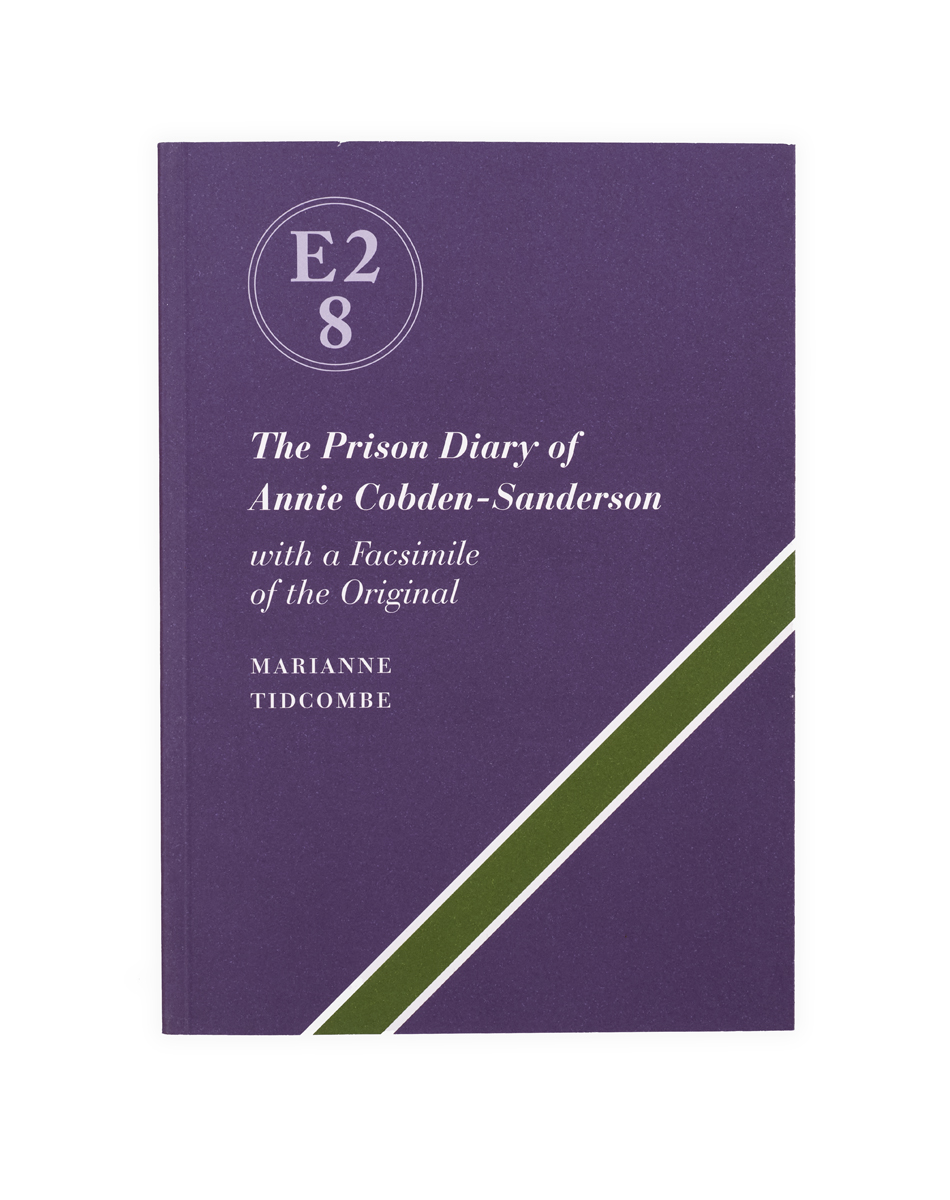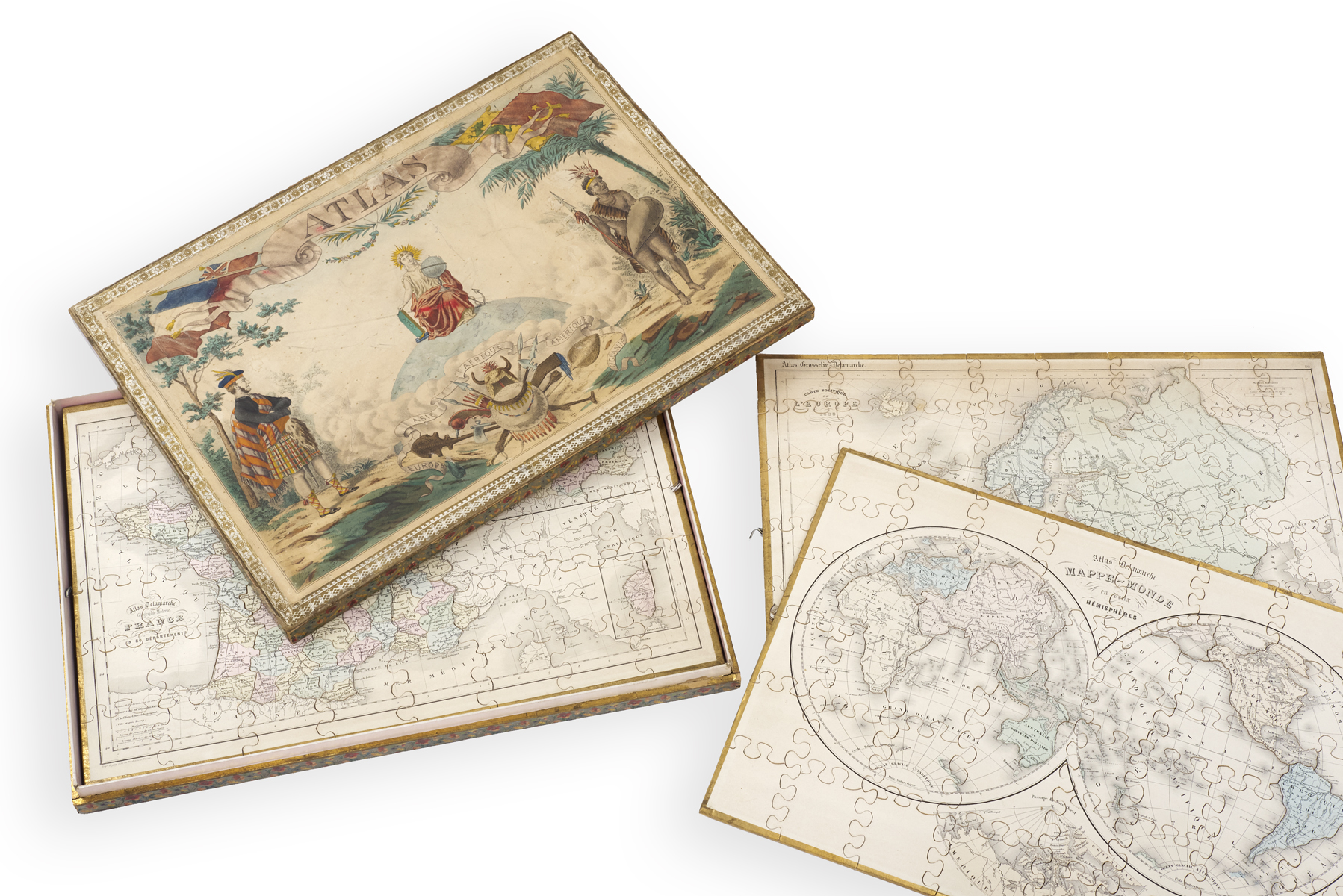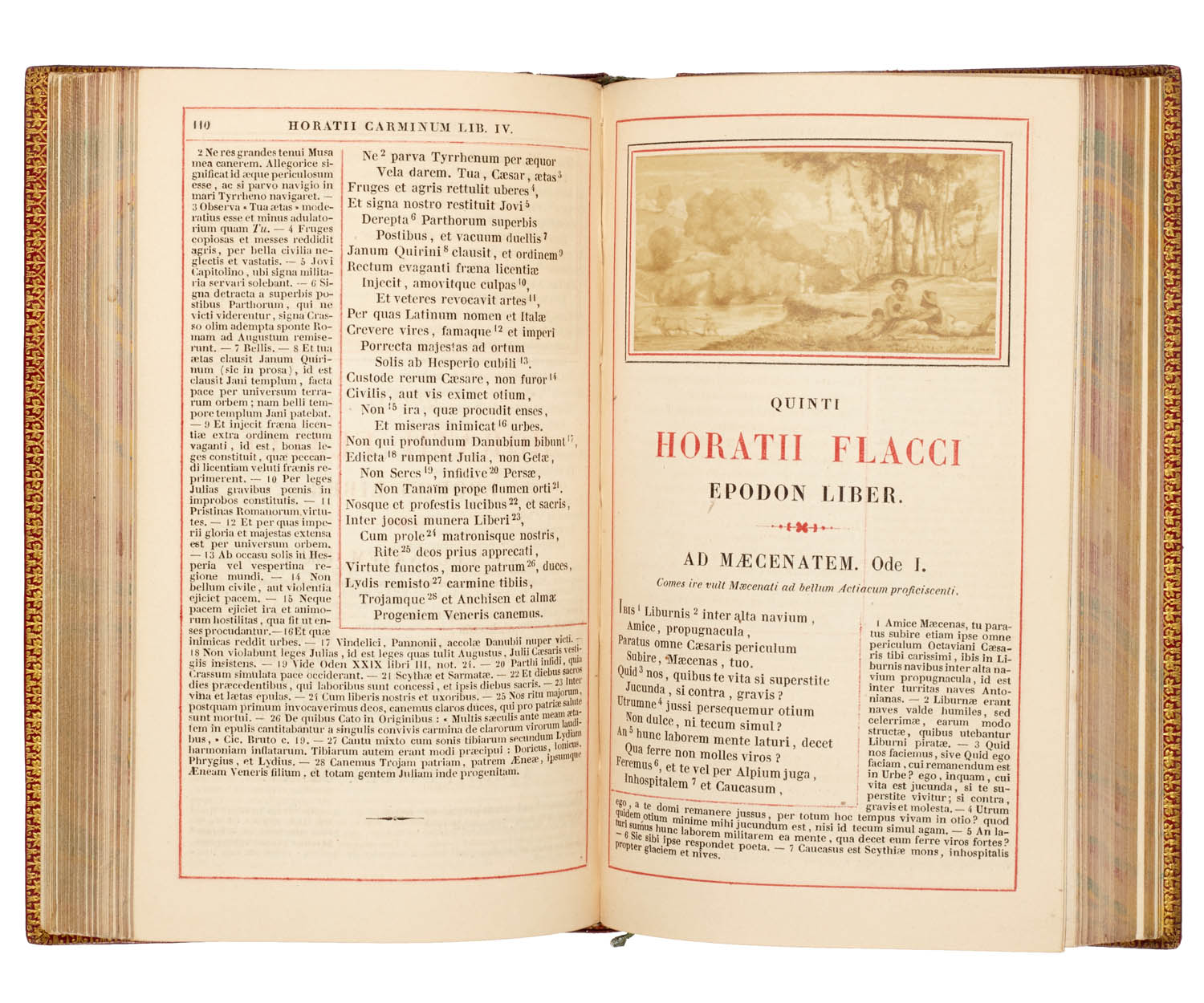
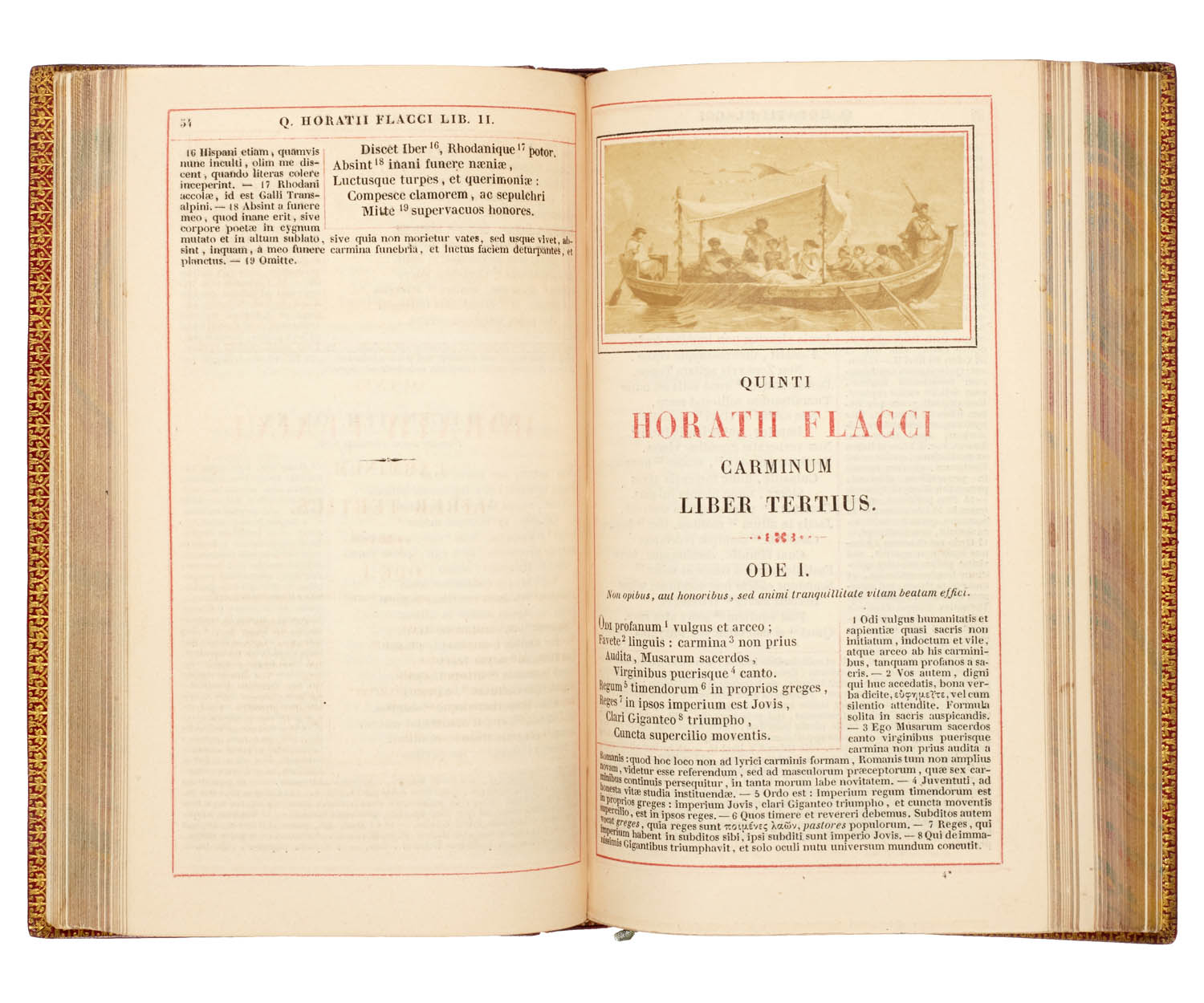
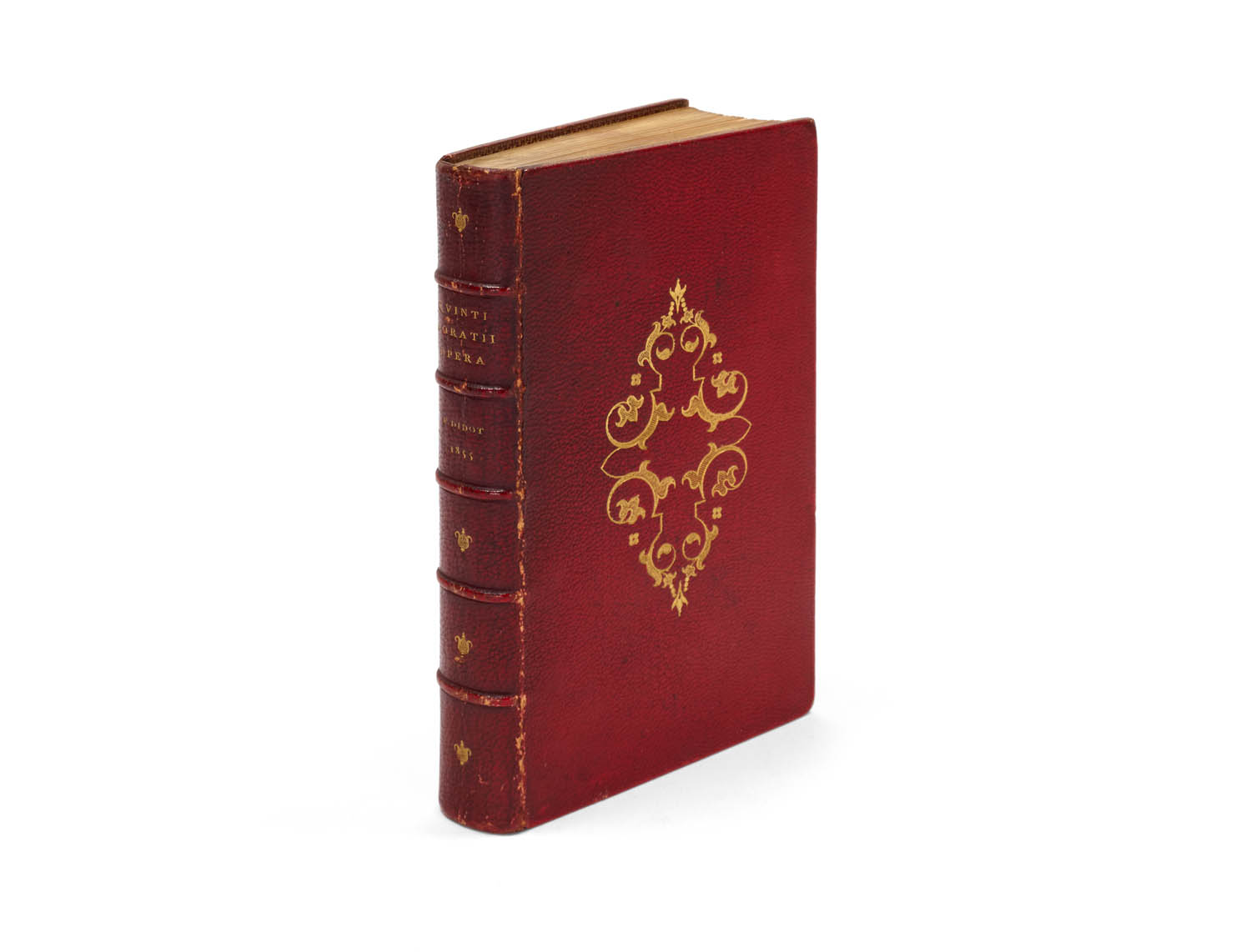
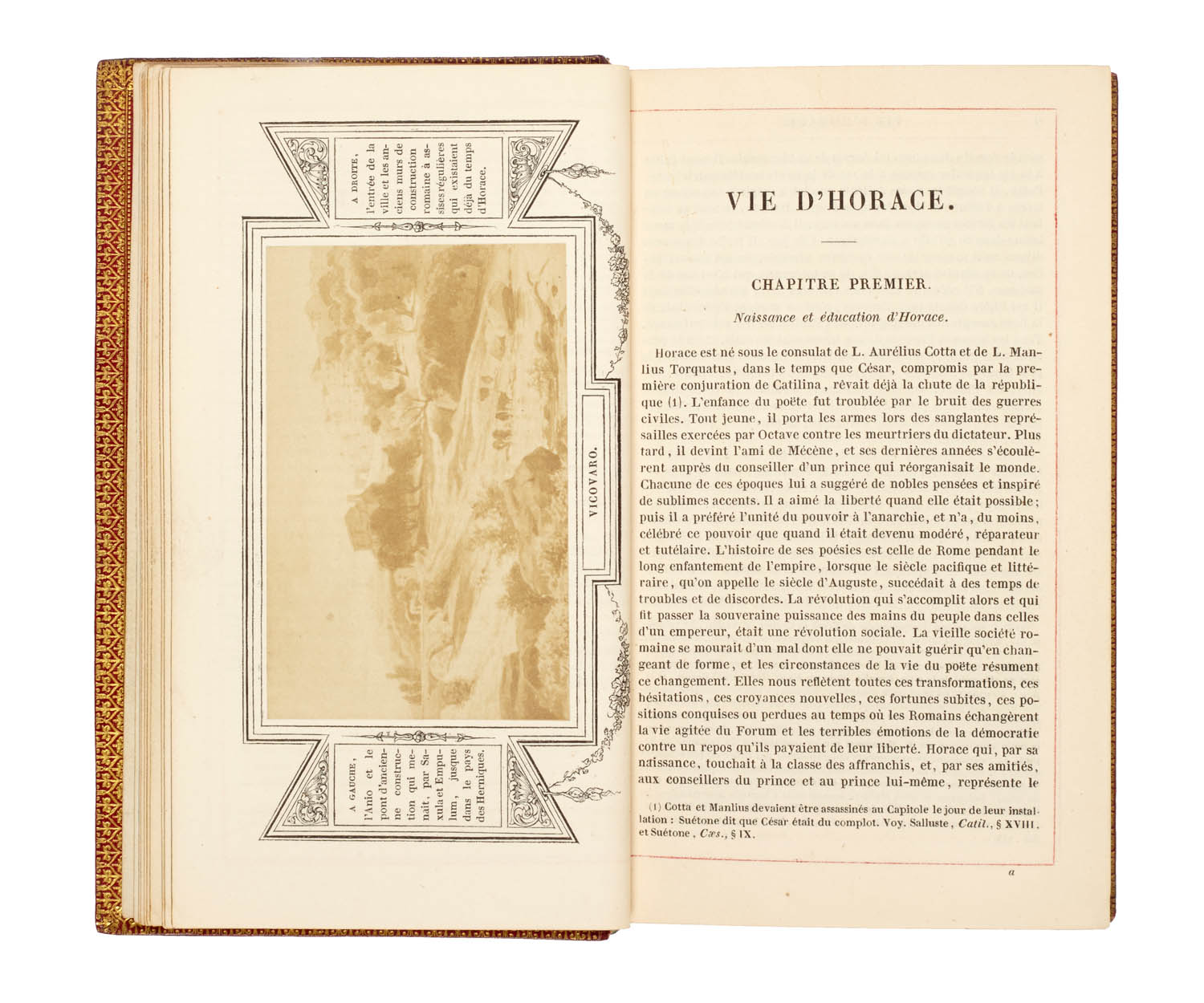
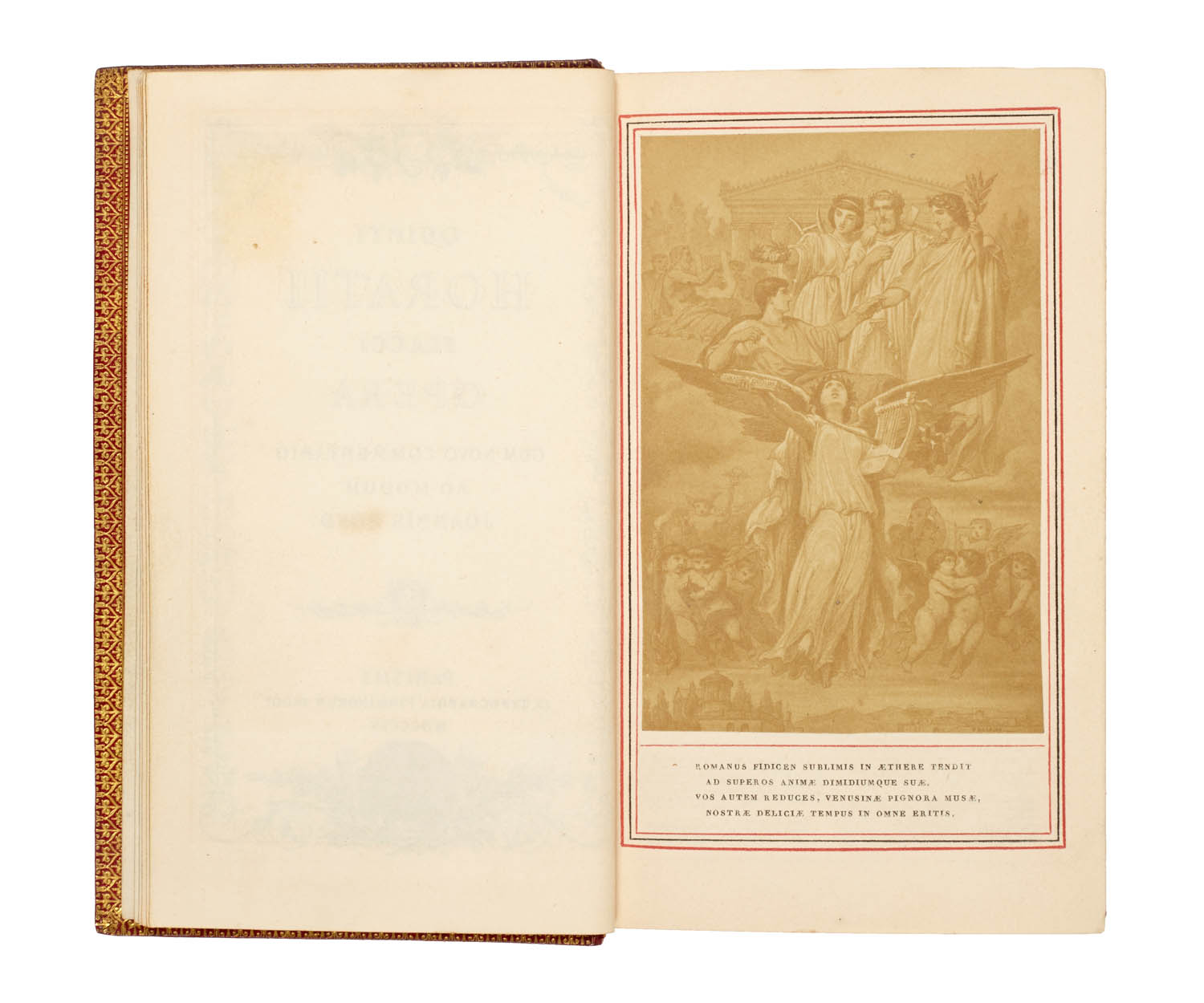
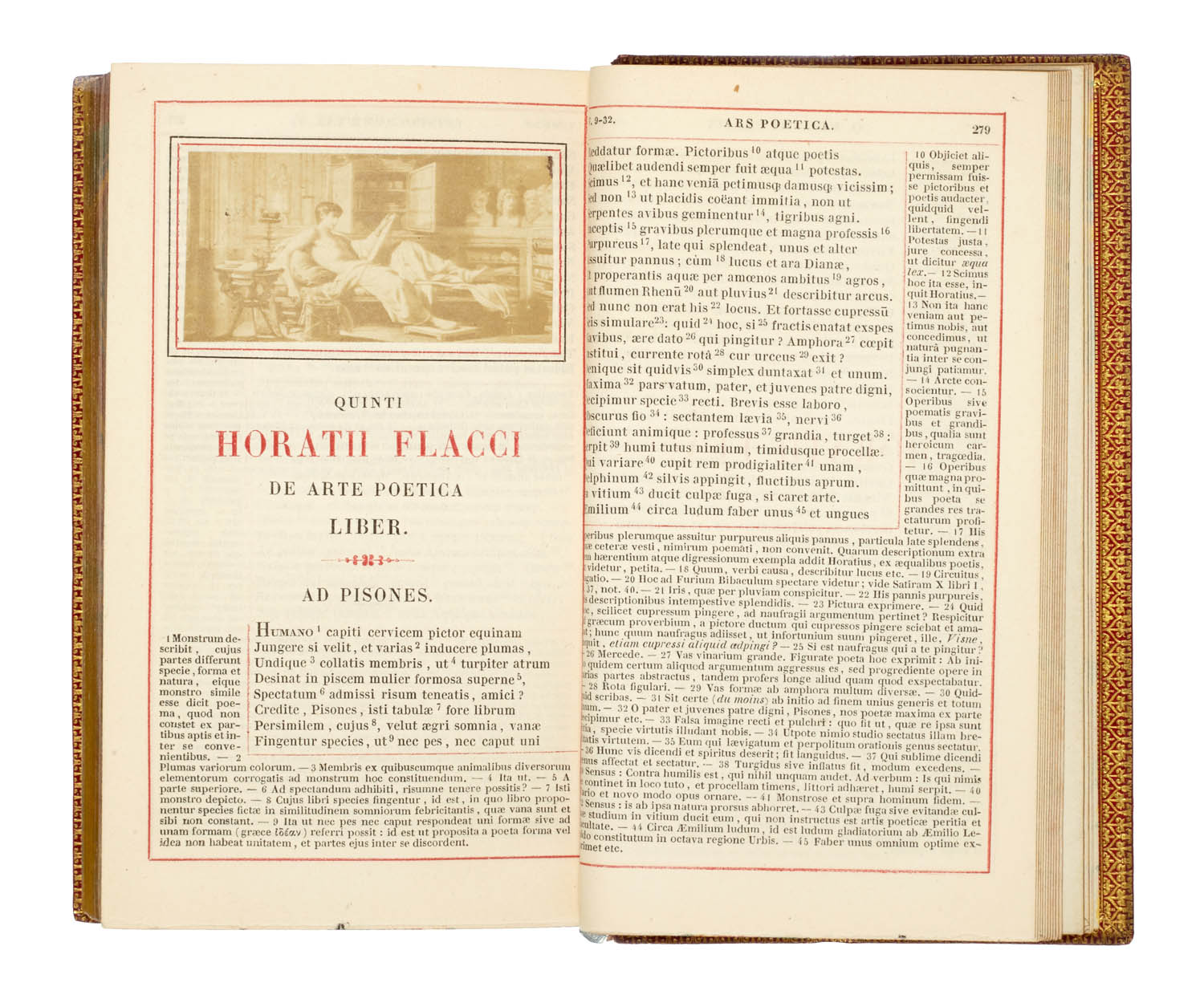
WITH AN EARLY PHOTOGRAPHIC APPARATUS
HORACE.
Quinti Horatii Flacci Opera cum novo commentario ad modum Joannis Bond.
Paris, Didot, 1855.
12mo, pp. [4], xlvi, [2], 299, [1]; with a full-page photographic illustration after the title, two double-page maps at end, six photographic plates, eleven photographic headpieces, borders printed in red throughout; occasional minor spots; early twentieth-century red crushed morocco by C. Hardy, panelled spine lettered and tooled in gilt, sides with a large central gilt lozenge, dentelles gilt, marbled endpapers, all edges marbled and gilt; bookplate removed from front pastedown, extremities just a touch rubbed; a very attractive copy, inscribed by Henry Yates Thompson, the collector of illuminated manuscripts, to James Welldon (1854–1937), Lord Bishop of Calcutta (see below).

Added to your basket:
Quinti Horatii Flacci Opera cum novo commentario ad modum Joannis Bond.
The deluxe issue of Didot’s Horace, a fine early photographically-illustrated work, complete with all the photographic plates, headpieces and maps, and printed on fine paper.
This copy is inscribed by Henry Yates Thompson, the collector of illuminated manuscripts, to James Welldon (1854–1937). The inscription was most probably penned in 1898, when Welldon, who was fond of the Classics and had translated Aristotle, left the headmastership of Harrow for his new post in Calcutta ‘Lord Bishop of Calcutta, in grateful recognition of much kindness & many good offices in connection with the establishment of the Art School at Harrow and with the very best wishes for his new career’.
Mills 1413.
